Description
Holy Bible - Today's Persian Version / Farsi - فارسی / United Bible Societies 2009 / TPV Bible Iran / Black, Hardcover, color maps
- Hardcover 2009
- ISBN: 9781920714758 / 978-1920714758
- ISBN-10: 1920714758
- PAGES: 1609
- PUBLISHER: United Bible Societies
- LANGUAGE: Persian (Farsi)
- 150 x 213 x 36mm | 839g
English Summary:
An easy-to-read and understand translation of the Bible in Persian language. Carry around size in sturdy hardcover binding.
Modern Persian translation completed in 2009. A scholarly interpretation of the Greek and Hebrew original text.The first part of this holy book accurately presents the life and teachings of Moses, Elisha, King David, the wisdom of King Solomon, and the teachings of the great prophets who warned the people of God's judgment and His mercy. The prophet Isaiah is a great voice preparing for the arrival of the holy teacher, Jesus.The second part of this holy book accurately presents the life and teaching of Jesus, but also includes the writings of His followers.
Persian (Farsi) is an ancient language spoken by over sixty million people, mainly in Iran, formerly called Persia. According to Acts 2:9 there were Persians, Parthians and Medes among the very first new Christian converts at Pentecost. Since then there has been a continuous presence of Christians amongst the Persians, initially as part of the Nestorian Church of the East. The Bible was translated into Persian by Henry Martyn, a contemporary of William Carey, who translated the New Testament. In 1811 he journeyed into Persia and sent a copy of his translation of the New Testament to the Shah. It was published in 1815. The complete Bible translation was completed in 1838. A revision was published in 1896, now known as the Old Version (OV).
Persian Summary:
ترجمهای ساده و قابل فهم از کتاب مقدس به زبان فارسی، با قابلیت حمل در اندازه کوچک و جلد سخت.
ترجمهٔ فارسی مدرن، در سال ۲۰۰۹ به پایان رسید. تفسیر علمی متن اصلی یونانی و عبری. بخش اول این کتاب مقدس، زندگی و آموزههای موسی، الیشع، پادشاه داود، حکمت پادشاه سلیمان، و آموزههای پیامبران بزرگ را به دقت بیان میکند که به مردم هشدار دادهاند که داوری خداوند و رحمت او فرا رسیده است. پیامبر اشعیا بهعنوان یکی از آنان، صدای برجستهای در آمادهسازی برای آمدن معلم مقدس، عیسی مسیح داشت.
بخش دوم این کتاب مقدس، زندگی و آموزههای عیسی مسیح را با دقت بیان میکند، اما همچنین شامل نوشتههای پیروانش است.
زبان فارسی (فارسی) به زبان امروزی پنجاه میلیون نفر در ایران، سابقاً با نام پارس، صحبت میشود. همان طور که در اعمال ۲:۹ ذکر شدهاست، پارسیان، پارتیان و مادینیان در بین نخستین مسیحیانی بودند که در پنتیکاست به دین جدید گرویدند. از آن زمان تاکنون، حضوری مستمر از مسیحیان در بین پارسیان وجود داشته است، در ابتدا به عنوان یکی از قسمتهای کلیسای شرقی نستوری. کتاب مقدس توسط هنری مارتین، همزمان ویلیام کری، که نوشتار جدید را ترجمه کرده است، به فارسی ترجمه شد. او در سال ۱۸۱۱ به پارسی آمد و یک نسخه از ترجمهٔ خود از نوشتار جدید را به شاه ارسال کرد. این کتاب در سال ۱۸۱۵ منتشر شد. ترجمهٔ کامل کتاب مقدس در سال ۱۸۳۸ به پایان رسید. نسخهای بازبینی شده در سال ۱۸۹۶ منتشر شد، که به عنوان نسخهٔ قدیمی (OV) شناخته میشود.
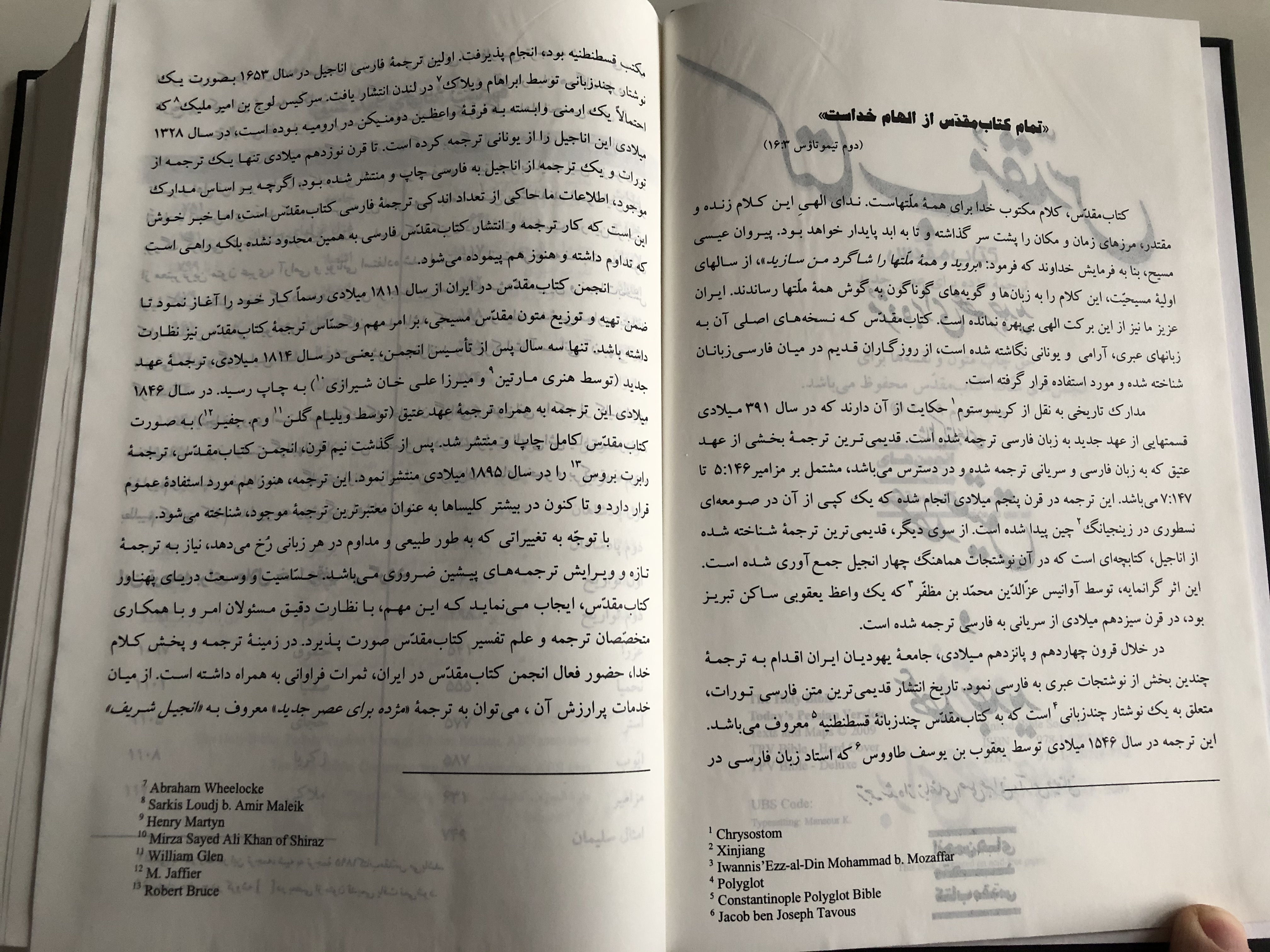
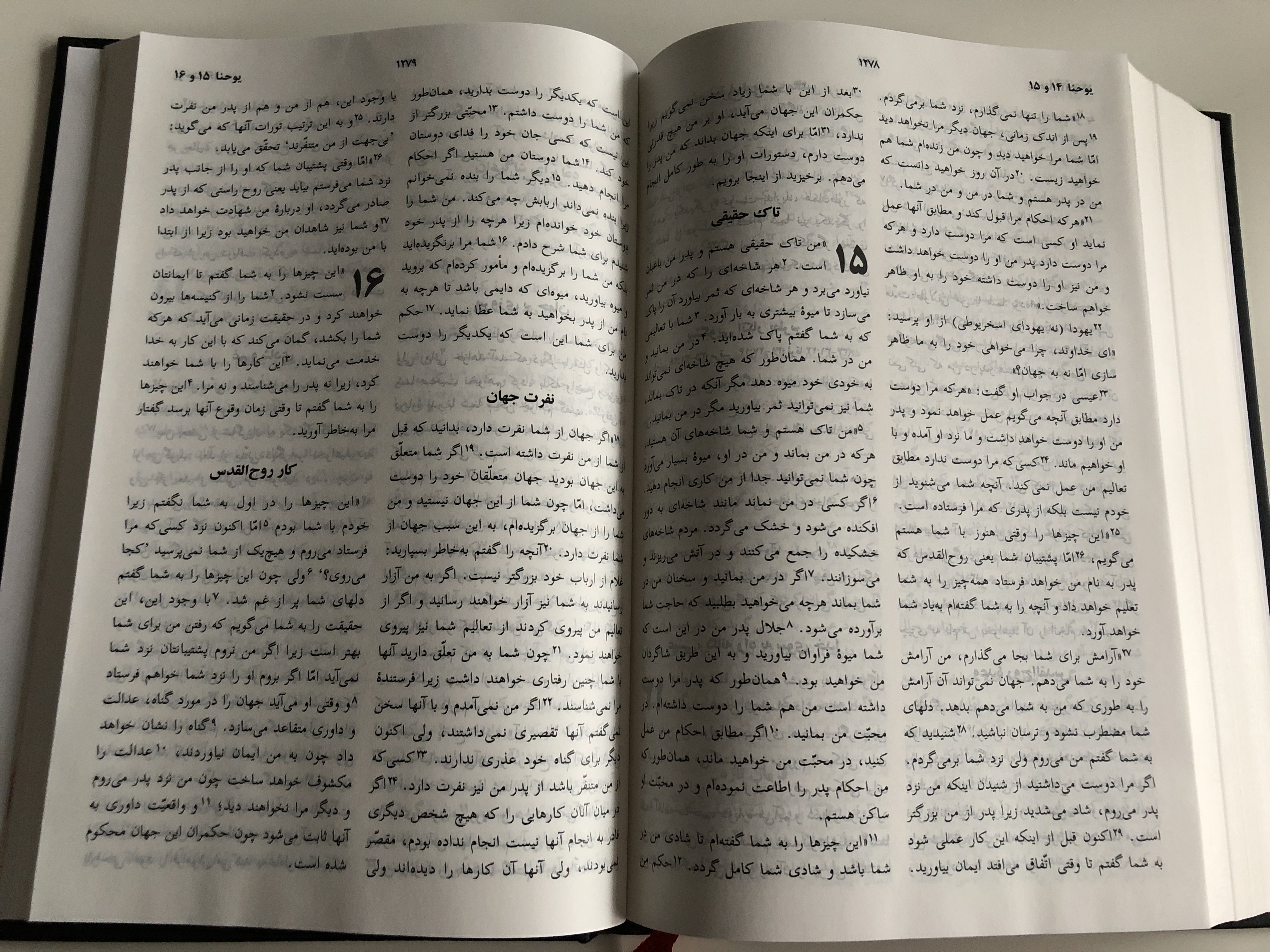
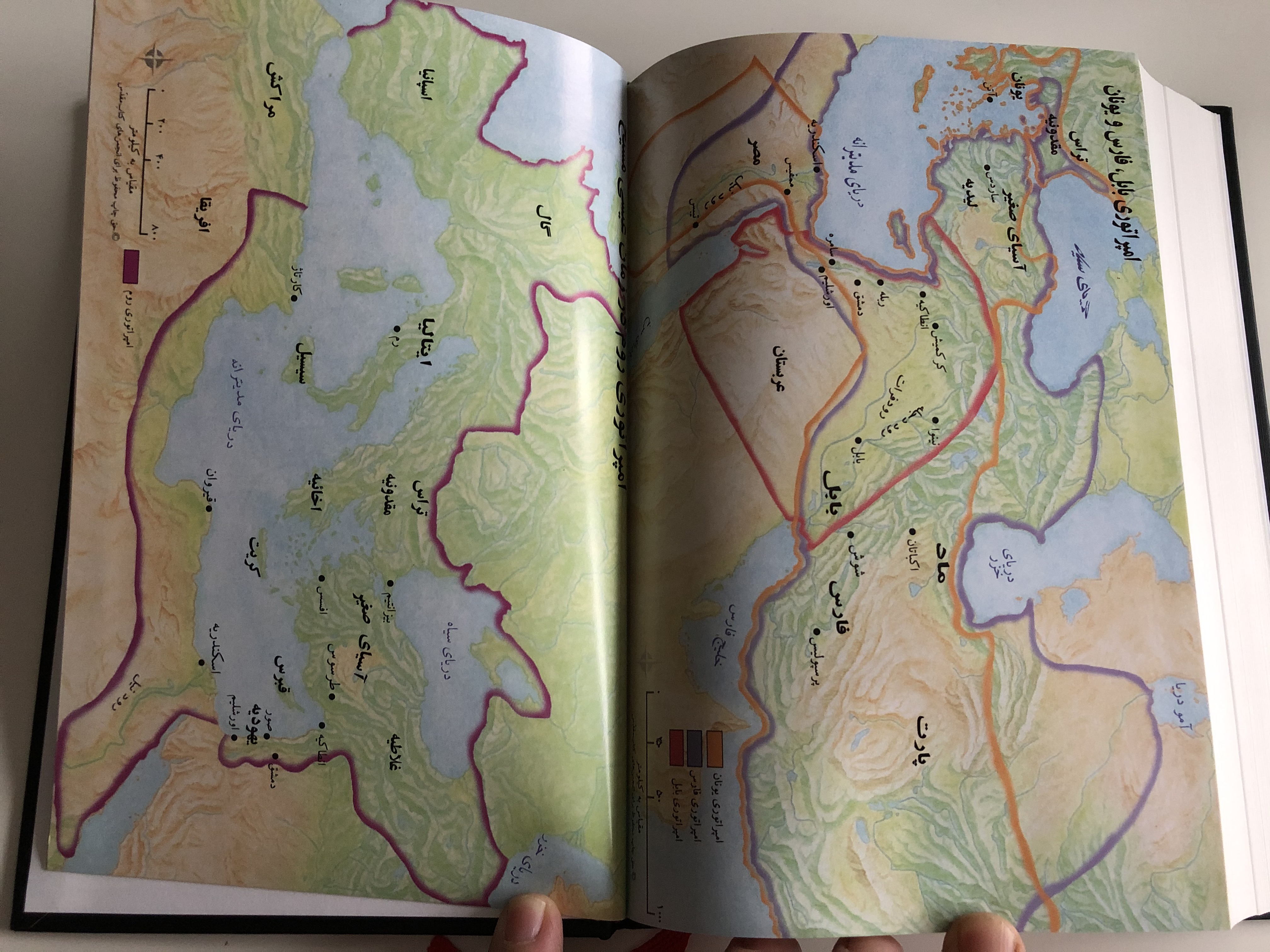
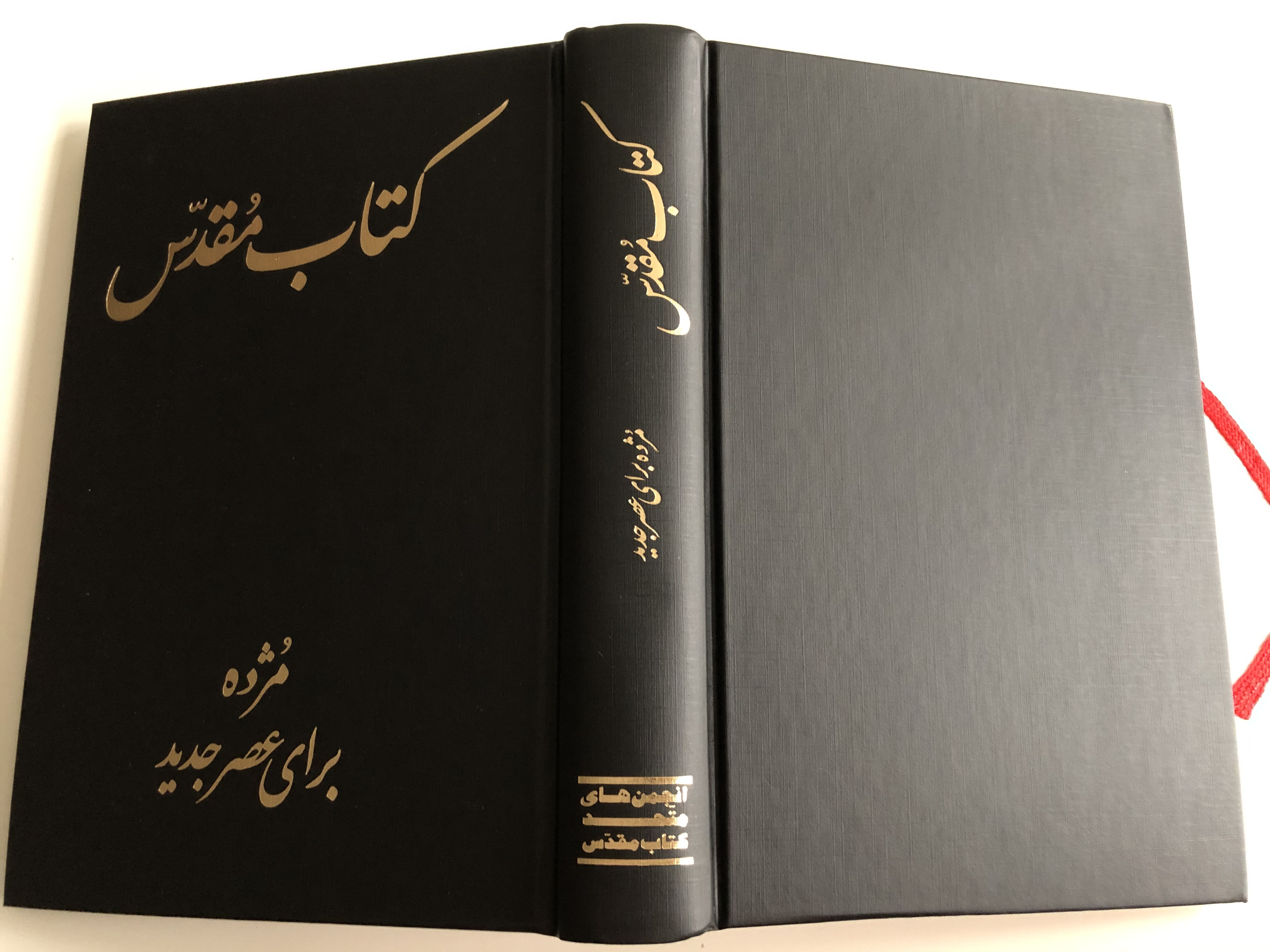





































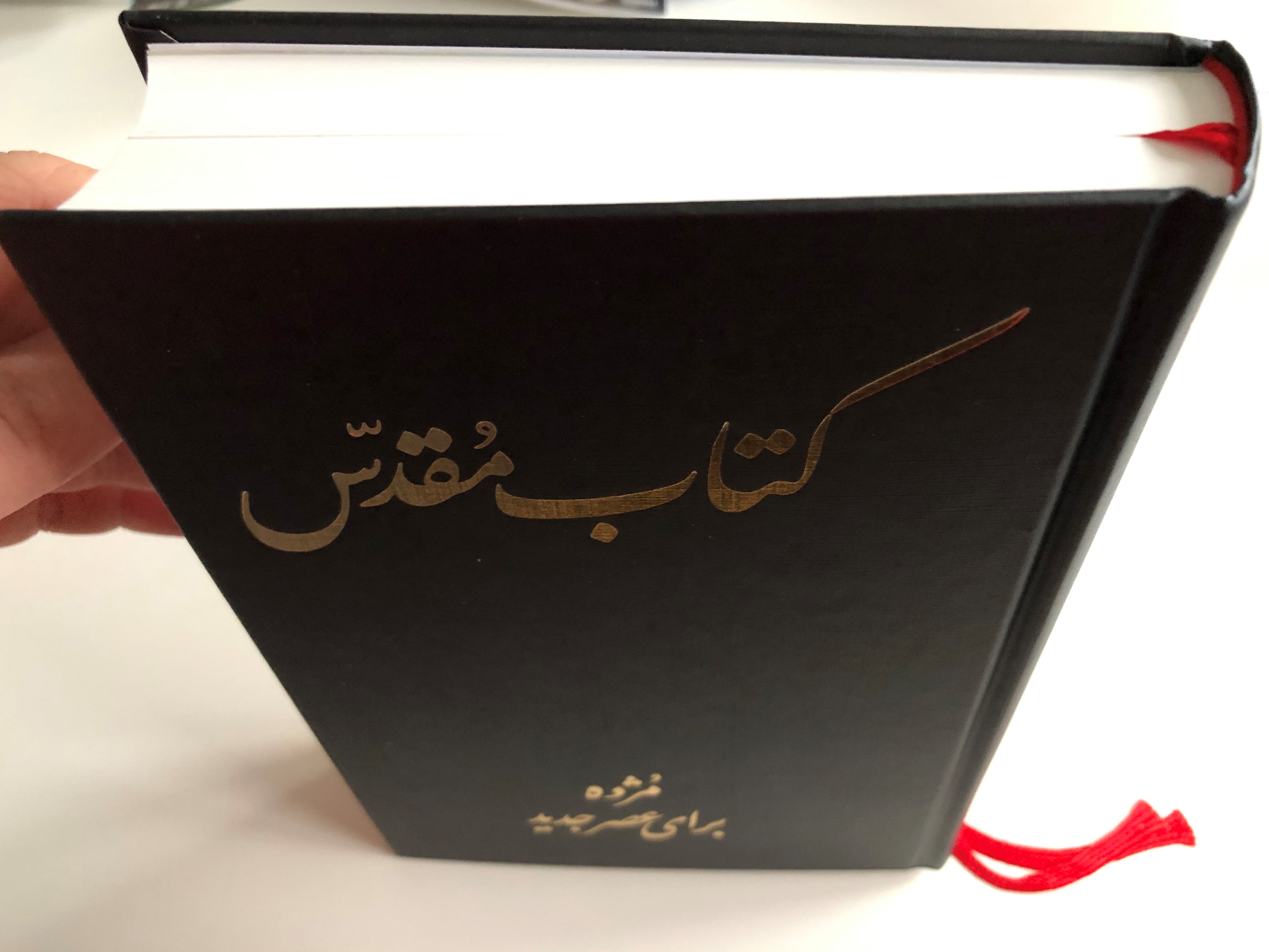







![Persian Children's Bible / Today's Persian Version - Farsi Language [Hardcover] Persian Children's Bible / Today's Persian Version - Farsi Language [Hardcover]](https://cdn11.bigcommerce.com/s-62bdpkt7pb/images/stencil/600x600/products/2058/5365/1%2520%25281%2529__72655.1462823262.JPG?c=2)
![Persian Children's Bible / Today's Persian Version - Farsi Language [Hardcover] Persian Children's Bible / Today's Persian Version - Farsi Language [Hardcover]](https://cdn11.bigcommerce.com/s-62bdpkt7pb/images/stencil/600x600/products/2058/5414/1%2520%25282%2529__02050.1462823263.JPG?c=2)
![Persian Children's Bible [Hardcover] by United Bible Societies Persian Children's Bible [Hardcover] by United Bible Societies](https://cdn11.bigcommerce.com/s-62bdpkt7pb/images/stencil/600x600/products/455/981/1__32479.1462823128.JPG?c=2)



